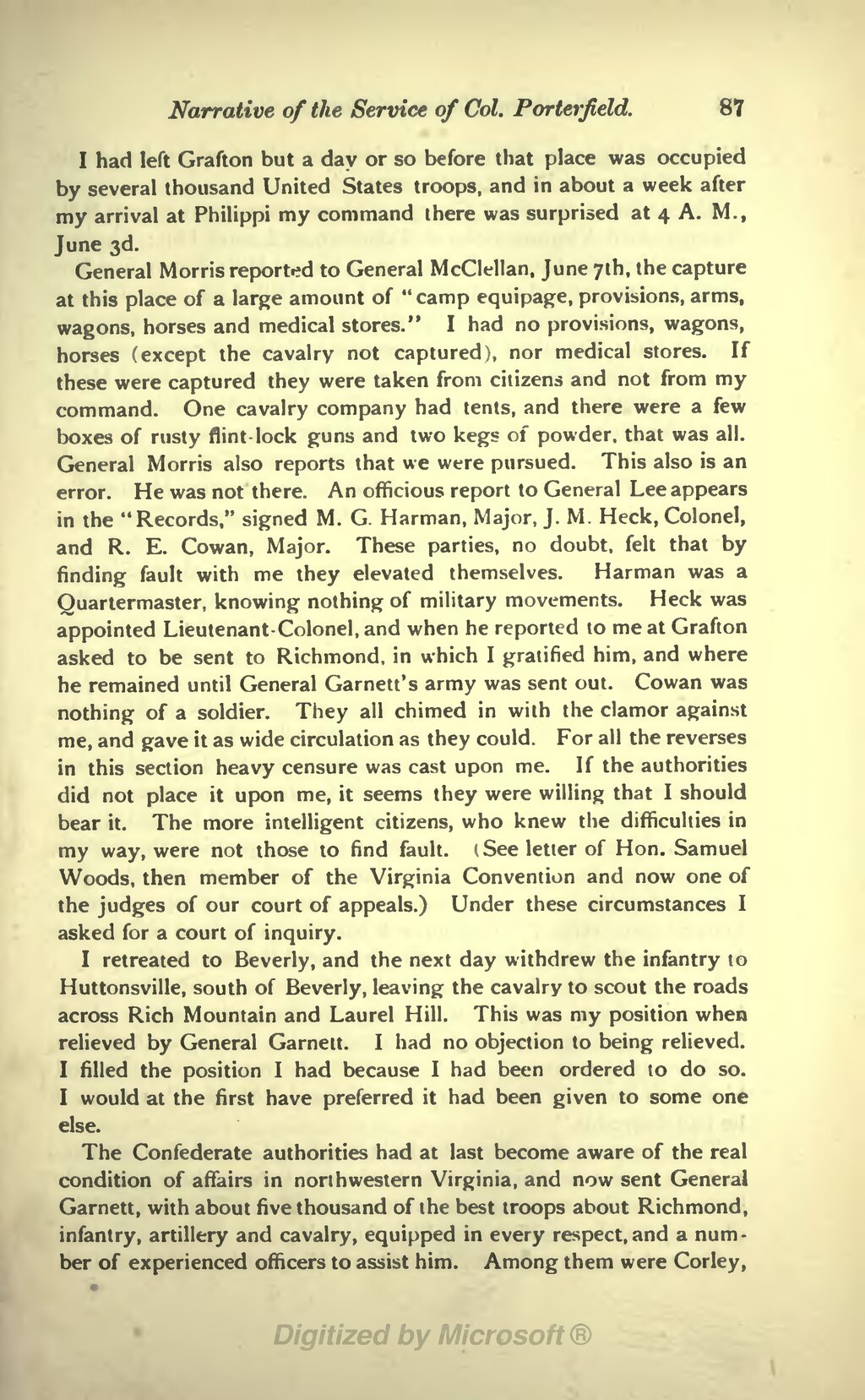Narrative of the Service of Col. Porterfield. 87
I had left Grafton but a day or so before that place was occupied by several thousand United States troops, and in about a week after my arrival at Philippi my command there was surprised at 4 A. M., June 3d.
General Morris reported to General McClellan, June yth, the capture at this place of a large amount of "camp equipage, provisions, arms, wagons, horses and medical stores." I had no provisions, wagons, horses (except the cavalry not captured), nor medical stores. If these were captured they were taken from citizens and not from my command. One cavalry company had tents, and there were a few boxes of rusty flint-lock guns and two kegs of powder, that was all. General Morris also reports that we were pursued. This also is an error. He was not there. An officious report to General Lee appears in the "Records," signed M. G. Harman, Major, J. M. Heck, Colonel, and R. E. Cowan, Major. These parties, no doubt, felt that by finding fault with me they elevated themselves. Harman was a Quartermaster, knowing nothing of military movements. Heck was appointed Lieutenant-Colonel, and when he reported to me at Grafton asked to be sent to Richmond, in which I gratified him, and where he remained until General Garnett's army was sent out. Cowan was nothing of a soldier. They all chimed in with the clamor against me, and gave it as wide circulation as they could. For all the reverses in this section heavy censure was cast upon me. If the authorities did not place it upon me, it seems they were willing that I should bear it. The more intelligent citizens, who knew the difficulties in my way, were not those to find fault. (See letter of Hon. Samuel Woods, then member of the Virginia Convention and now one of the judges of our court of appeals.) Under these circumstances I asked for a court of inquiry.
I retreated to Beverly, and the next day withdrew the infantry to Huttonsville, south of Beverly, leaving the cavalry to scout the roads across Rich Mountain and Laurel Hill. This was my position when relieved by General Garnett. I had no objection to being relieved. I filled the position I had because I had been ordered to do so. I would at the first have preferred it had been given to some one else.
The Confederate authorities had at last become aware of the real condition of affairs in norihwestern Virginia, and now sent General Garnett, with about five thousand of the best troops about Richmond, infantry, artillery and cavalry, equipped in every respect, and a num- ber of experienced officers to assist him. Among them were Corley,
